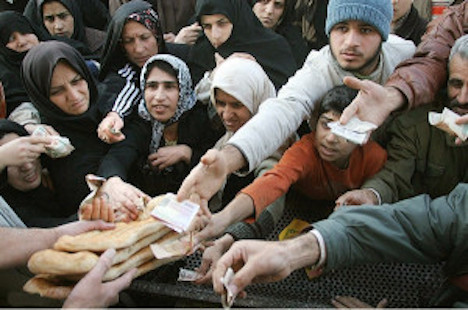
Report Finds Sanctions Impede
Medicine Deliveries and Caused Food Insecurity
Dave DeCamp / AntiWar.com
(September 14, 2022) — A UN rapporteur issued a report on Monday that detailed the impact of the economic embargo on Iran imposed by sanctions from the US and other Western powers.
Alena Douhan, a special rapporteur for the impact of unilateral coercive measures, said that the sanctions impact nearly every aspect of life and called for them to be lifted.
The US sanctions technically have exemptions for goods such as food and medicine, but Douhan said that licenses that are supposed to be issued by the US Office of Foreign Assets Control for the exemptions “appeared to be ineffective and nearly non-existent.”
History has shown that US sanctions discourage international banks and companies from doing business with the targeted country altogether. Because of this, US sanctions still cause shortages of humanitarian goods despite the exemptions.
Last year, a group of UN experts said US sanctions were causing medicine shortages in Iran, and Iranians with rare diseases have been dying due to a lack of access to special medicines that they needed. For example, Al Jazeera reported that Iranians with a disease that causes blisters and wounds on the skin were dying because Iran could no longer import a special bandage after the US withdrew from the nuclear deal in 2018 by reimposing sanctions.
Douhan said that the delivery of medicine and medical goods to Iran was “severely undermined” by sanctions. She also noted that sanctions have caused more food insecurity in the country. “Food insecurity rates among the population have soared, reaching 60 percent in certain regions,” Douhan said.
The warnings from Douhan come as negotiations to revive the nuclear deal seem to have fallen apart, meaning the US has no plans to lift sanctions on Iran. The Biden administration has continued and expanded the so-called “maximum pressure” campaign against Iran that was started by the Trump administration.